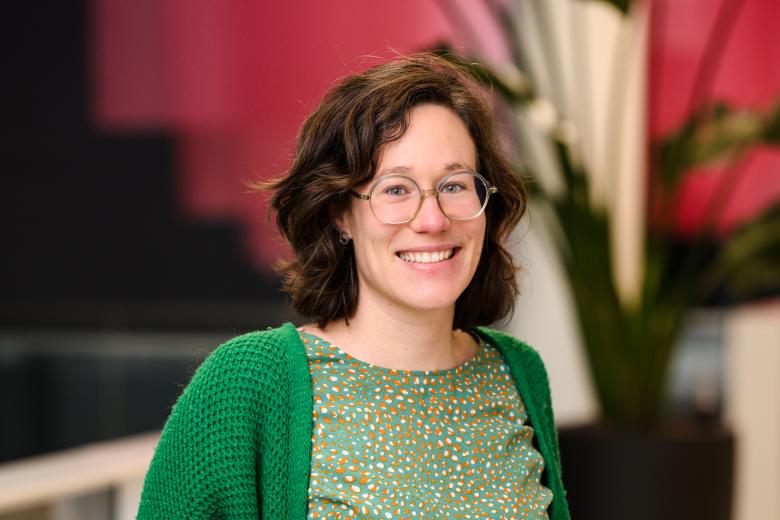From research to improvements in patient care: Translate2Clinic Fellowship
Maastricht UMC+ has a long tradition of connecting research and clinical practice, or translational research. With the sector plan funds, we are giving an extra boost to further strengthen this position. Read this article for an interim update on the Translate2Clinic Fellowship awarded to four medical specialists at MUMC+.
Translate2Clinic Fellowship
The four ambitious medical specialists are working on a Translate2Clinic Fellowship as part of the sector plan. This fellowship enables medical specialists to set up their own research line, with which they translate fundamental research into improvements in patient care. We asked the fellows Stefan Bouwense (oncological surgeon), Peggy de Vos van Steenwijk (gynaecological oncologist), Reint Jellema (paediatrician-neonatologist) and Floor Heubel-Moenen (internist-haematologist) about their research and what this fellowship means to them.
Bridging the gap between fundamental research and patient care
The common thread in the conversations is the desire to bridge the gap between fundamental research and daily patient care. Thanks to this fellowship, the fellows are given protected time to realise their research ambitions. "As a medical specialist, time is the biggest problem when you want to combine research with tasks in the hospital and in education," says Peggy. "In addition to recognition, this fellowship also provides actual time allocated for research." Stefan recognises this: "After my training as a surgeon, I noticed that my work at the hospital took up all my attention and that science shifted to the evenings and weekends. That situation made it difficult to set up a research line. The fellowship provides protected research time, allowing you to take a step forward as a researcher."
Text continues below the photo.
From left to right: Reint Jellema, Peggy de Vos van Steenwijk, Floor Heubel-Moenen, Stefan Bouwense.
Innovative research lines
The fellows' researches focus on various medical challenges. Stefan is conducting research into mass spectrometry. This technique is used to determine the structure and chemical properties of molecules and can help to improve the diagnosis of cancer and cysts (vesicles) in the pancreas. "Diagnosing pancreatic cancer and cysts in the pancreas is difficult in the clinic. We are often unable to accurately assess the diagnosis or risk of cancer, which leads to under- or over-treatment of patients. By applying mass spectrometry to tissue samples, we hope to enable better personalised treatment," he explains.
Peggy focuses on the role of the vaginal microbiome in HPV-related cancer (including cervical cancer). "This microbiome influences the immune system and vice versa, but exactly how these processes work is unknown," she explains. "In most cases, the HPV virus is cleared by the body itself, but in some patients this does not happen. Our research shows that the immune system plays an important role in this, but also that a disruption of the vaginal microbiome appears to hinder the clearance of the virus. The relationship between these two factors is what we are now going to investigate."
Reint is working on improving the treatment of brain damage caused by oxygen deprivation in newborn babies. "The current treatment, which involves cooling, is not effective enough. Approximately half of children who suffer from oxygen deprivation at birth still develop cerebral palsy: a permanent movement disorder with lifelong limitations," he explains. "In previous preclinical studies, we demonstrated that stem cell therapy has positive effects on brain development after oxygen deprivation around the time of birth. Now we are going to investigate the best time to start this therapy in combination with cooling to prevent brain damage."
Floor is investigating how the Maastricht Flowchamber test can be used in the diagnosis of coagulation disorders. "This test allows us to visualise blood coagulation more realistically than ever before," she explains. "During my PhD research, I discovered that this method provides unique insights in patients with a bleeding tendency without a clear cause. That makes it a promising addition to existing diagnostics." But there is still work to be done: "The biggest challenge now is to make the test faster, simpler and more applicable for use in the clinic."
Multidisciplinary collaboration
What stands out is the importance of collaboration in all research projects. The fellows work together with various disciplines, from laboratory specialists to clinicians and from technologists to ethicists. "It is incredibly motivating to work together towards a common goal," emphasises Floor. "This project reflects my belief that collaboration is essential for innovation and improving patient care. I get a lot of joy and satisfaction from it."
Reint shares this enthusiasm: "I enjoy working with a large group of enthusiastic people on our challenging project. It makes me proud to be able to work in a multidisciplinary team of doctors, nurses and researchers which is among the world's best in this field."
Personal development and motivation
For all fellows, this fellowship represents an important step in their academic development. "It's really enjoyable and gives you a lot of energy," says Stefan. "You meet new people and look at problems from a different perspective than you sometimes do as a doctor. It's also a personal grant, which really gives my own career a boost."
Floor also emphasises her motivation: "This fellowship allows me to make connections between fundamental research, diagnostic laboratories and clinical departments. It's a great opportunity to make innovative techniques available to patients."
Impact on patient care
The fellows all share the ambition to improve patient care in concrete terms. "Through continuous interaction between clinical and fundamental research and by incorporating the perspectives of parents and patients, we can work together to improve treatment for patients more quickly," says Reint.
The Translate2Clinic Fellowship not only offers these specialists the opportunity to realise their research ambitions, but also contributes to the position of MUMC+ as a progressive academic hospital and faculty. As Peggy concludes: "The fellowship allows me to pursue my scientific interests and my ambition to build bridges between research and patient care. This means that the knowledge in the laboratory can actually be used to improve patient care."
Would you like to know more about these researches? Please contact one of the fellows. The Translate2Clinic fellowship is part of the Medical and Health Sciences sector plan. Read more about it on UMployee.
Photos: Joëlle van Wissen
Also read
-
Aurélie Carlier receives Athena Award
Aurélie Carlier receives the Athena Award. This award is for exceptional female researchers who are role models through their successful scientific careers.
-
Denise Slenter Joins the BioSB Board as 'YoungCB' Portfolio Leader: request for PhD representative, and members
YoungCB is a network group designed for Early Career Researchers in Bioinformatics and Systems Biology, providing valuable opportunities for MSc students, PhD candidates, and postdocs to connect and collaborate.
-
High impact paper in Nature Reviews Drug Discovery
Members of Translational Genomics together with the TransQST consortium published a high impact paper in Nature Reviews Drug Discovery. It highlights the advancements in the development of in vitro models for predicting drug toxicity, with recommendations for their application in drug discovery.
